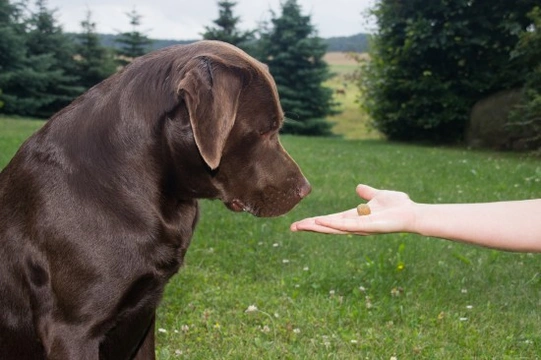
How to Choose a Dog Trainer
Sadly, too many dogs end up in rescue centres and animal shelters which can be extremely hard for many of them to cope with. It is also a well known fact, that many of these dogs have had a pretty bad start in life which has left them scarred and with certain behavioural problems. The good news is that a lot of these rescued dogs get a second chance of finding happiness when they are adopted by people who offer them a loving and safe home.
However, many people can find it quite hard to resolve certain behavioural problems their adopted pooches have developed which means they need expert advice and help from reputable dog trainers. However, finding one can sometimes seem like a daunting task itself. This is especially true for first-time dog owners because they don't know what to expect of a dog trainer.
In an ideal world, all dogs would have been well trained and socialised at a young age but sadly, this is not always the case. A good dog trainer would organise well planned classes that provide everything both a dog and their owners need to learn how to live alongside each other. A well planned training session would be a combination of fun things to do and lessons that focus on control and learning the necessary commands.
Asking for Help is Okay
Although you may think you can cope with that gorgeous four-legged friend you bought home with you from an animal shelter or that little bundle of fun you got from a breeder, you'd be amazed at how easy it is to get it wrong and this often includes by accident. It takes a lot of time and patience which many owners don't have. They may have the patience but not enough time due to work or other commitments which means their four-legged friend's training is always put on the back burner.
The problem is that a puppy never stops learning even if you are not pro-actively teaching them and this is when they can start picking up some very bad habits. An older dog that's set in their ways if left to their own devices, will just continue getting it wrong through no fault of their own but because they have not be taught any better – just like children.
Taking a puppy or an older dog along to training classes is okay and more often than not, the best route to take because you'll end up with a much happier pet all round and one that it's a pleasure to spend time with, no matter where you take them.
How To Choose a Good Trainer
When choosing a dog trainer, one of the most important factors to consider is whether they use humane training techniques that support positive reinforcement. In short, trainers should reward good behaviour by offering dogs either healthy treats, lots of praise and attention. You should avoid getting involved with any dog trainer who still insists on only giving dogs a rewards when they submit"" to a command.
Other training techniques which have to be avoided at all costs include the following:
- Shouting or yelling
- Choking – choke collars are never to be used when training a dog
- Yanking on a lead
- Forcing a dog to lay on their backs – this is often referred to as ""alpha rolling""
- Anything that frightens a dog
Where do You Find a Good Dog Trainer?
By far the best way to find a good dog trainer is to ask a friend if they can recommend someone to you. Verbal referrals are always the best but if you don't know anyone who can recommend a trainer, the next place to look in online. However, you have to read a few independent reviews before making your final decision and it's also a good idea to initially go along to a training session without your dog to see how the trainer runs it.
Group Classes or Individual Training?
You may decide to take your dog for individual training but you would be well advised to get some advice about doing this first which could mean having your pooch assessed by a dog trainer first. Obviously, individual training tends to be more expensive but it is well worth the extra expense because your dog gets one to one contact with the trainer. The downside is they don't get to interact with other dogs which can be good or bad when socialisation is a concern.
Group training on the other hand is great for socialising dogs. The other advantage being that other people get to interact and handle your dog which is a great preparation for when they need to go to the vet or when you go on holiday and somebody else has to take care of your dog. Group training classes work for owners too because it allows them to see how other people handle and interact with their dogs.
Conclusion
Puppies need to be trained and socialised from a young age but older dogs too can be taught new tricks and how to behave. The old saying of you ""can't teach an old dog new tricks"" is not strictly true, it generally just takes that bit longer. Taking your dog to training classes benefits both you and your four-legged companion. The thing to bear in mind is that a well trained dog is a happier pooch. Because they are well behaved it means you can take them to a lot more places than a pooch that's unruly and/or too much of a handful.
""



